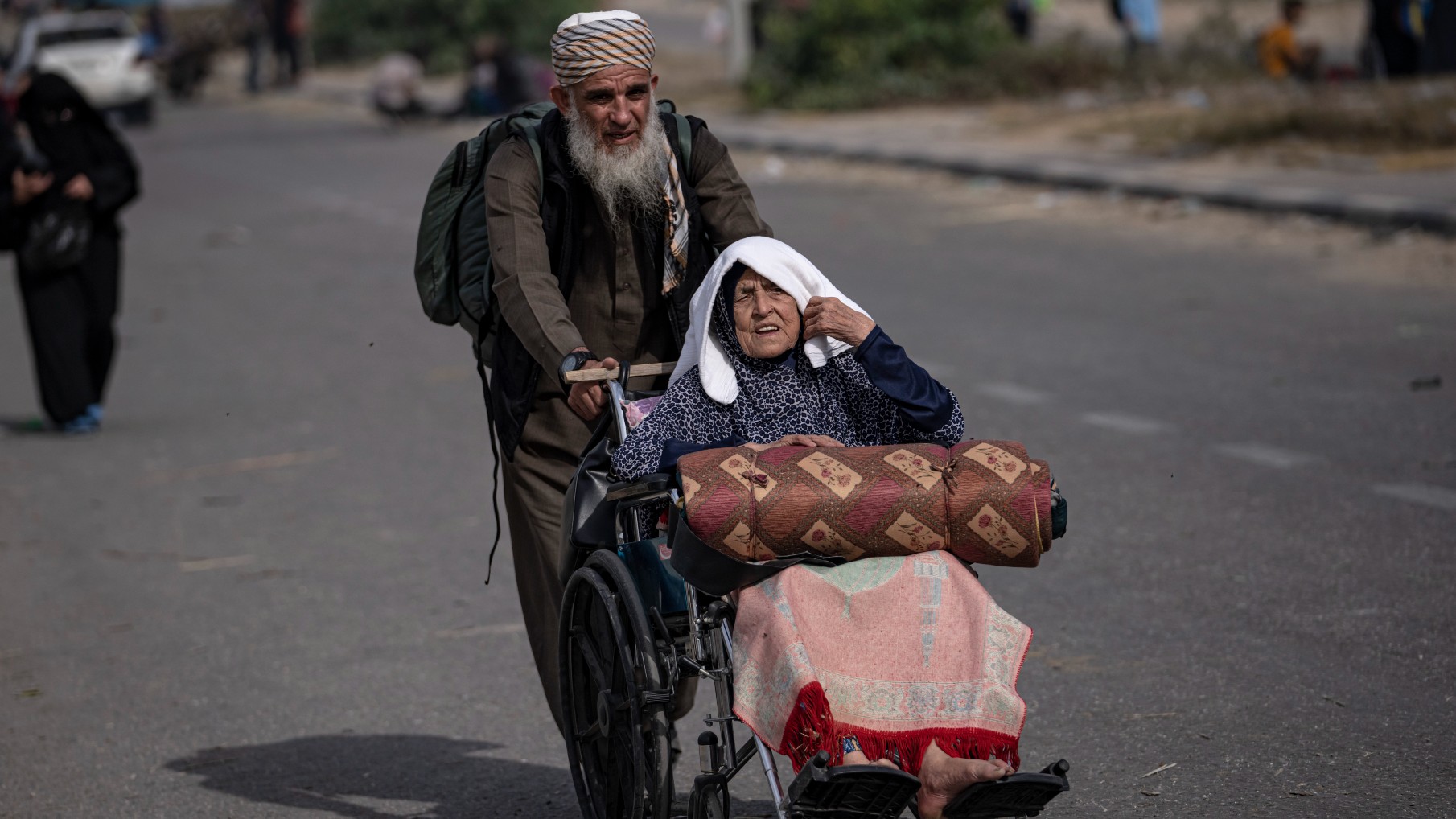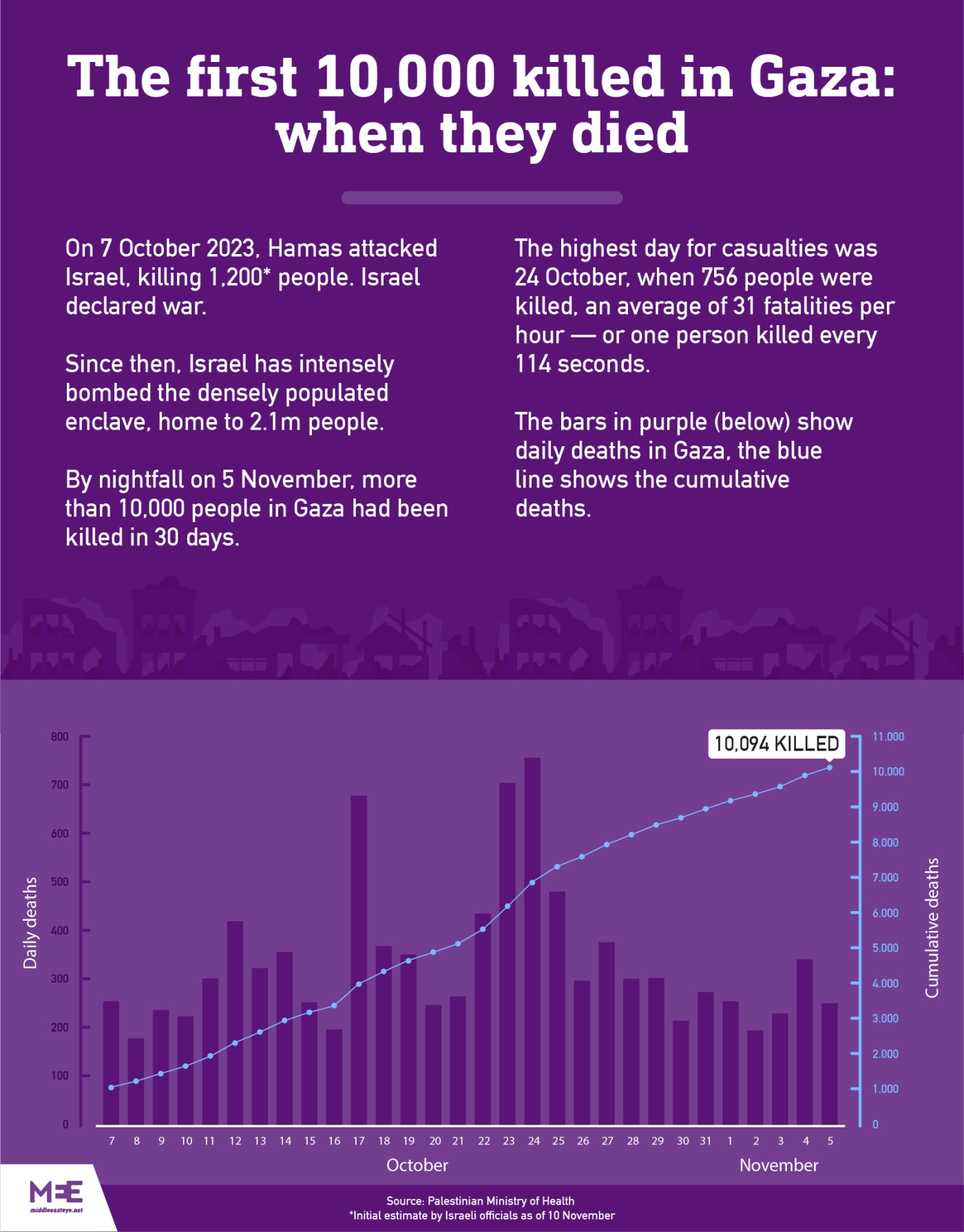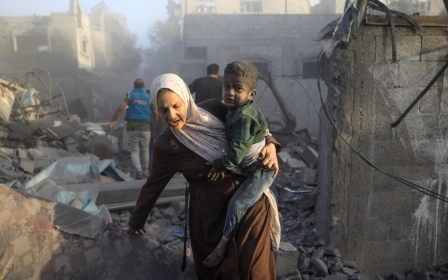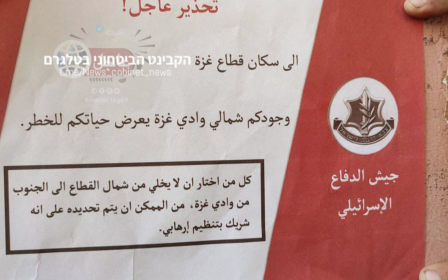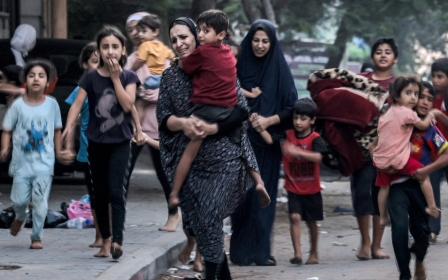Israel-Palestine war: Tens of thousands trapped without help in Gaza City
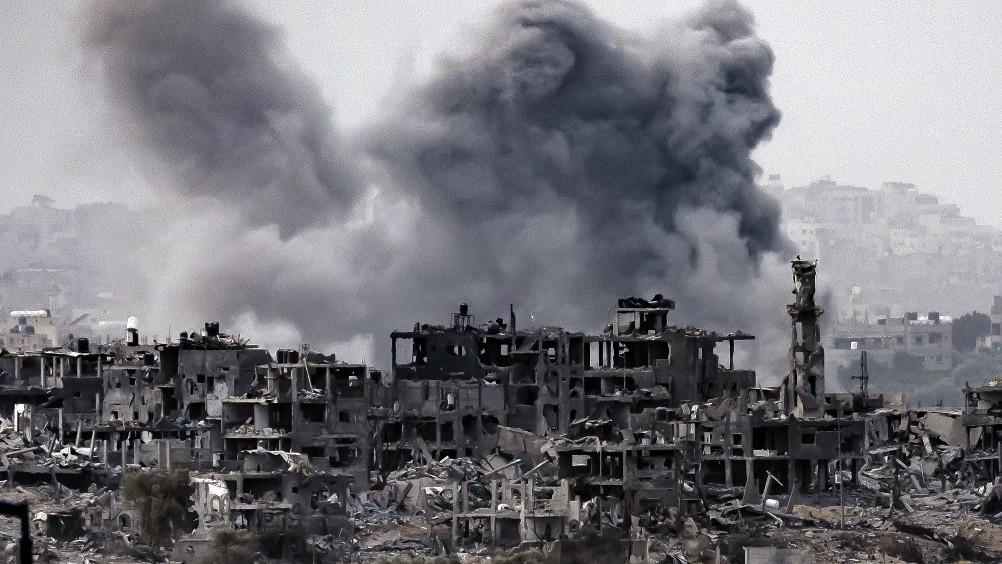
Nidaa Moien knew it would be dangerous if she remained in Gaza City, but also understood that heading south wasn't a safer option.
Speaking to Middle East Eye from the Yarmouk neighbourhood of the besieged city, she stopped the conversation to briefly peer through her living-room window as Israeli light bombs fell on nearby residential buildings, causing fires.
The 32-year-old and her family are among tens of thousands of Palestinians who couldn't leave their homes in Gaza City due to weeks of incessant Israeli bombardment.
"Most people are still here, many of my relatives have not left their homes, and we even see people fleeing their homes in other parts of Gaza City coming to our neighbourhood although it is not safe either," Moien told MEE.
"When I call my friends who have evacuated their homes to the southern areas, I feel that I am living in a different part of the world. We really feel isolated although we are a few kilometres apart."
New MEE newsletter: Jerusalem Dispatch
Sign up to get the latest insights and analysis on Israel-Palestine, alongside Turkey Unpacked and other MEE newsletters
On the first day of Israel's large-scale war on Gaza, Moien, her husband, and her two-month-old child left their home to take refuge at their in-laws' place in a nearby neighbourhood.
Then, during the mass displacement of residents of the northern Gaza Strip and Gaza City on 13 October after the Israeli 24-hour ultimatum for more than one million civilians to leave, she and her in-laws left their home to seek refuge in Khan Younis in the south.
However, they returned a week later after they had witnessed "the harshest nights" of Israeli bombing there.
"We thought that there was no need to stay there while the intensity of the bombing was the same," she said. "But above all, we could not stay longer because the number of displaced people taking refuge at our relatives' home was large, and the food and water supplies were scarce.
"We thought that it was better to return home, where we had stocked up on food and small amounts of water."
Moien said that what concerns her the most is that the food that is consumed will not be restocked, as grocery markets around them are closed, and they are unable to leave their home.
"Most of the time, we cannot even approach the window, fearing that snipers might be anywhere near our neighbourhood. We cannot leave the house for any reason. Even if we left, we will not find any markets still open."
She added that her relatives and friends who had left during the past week said they witnessed "a real nightmare", as they were forced to walk several kilometres with bombardments taking place around them.
Follow MEE's live coverage on the Israel-Palestine conflict
She is also worried that, if any of her immediate family needs medical treatment, there will not be hospitals to treat them.
"I am terrified that if we stay here and anyone of us gets wounded, or even if a child's leg is broken, we will not find any hospital or clinic still open in the entire city. The clinics around us were closed due to the lack of fuel, and the main hospitals are currently besieged by Israeli tanks. Anyone who approaches them is shot."
Since Friday, Israeli forces have been besieging the main hospitals in Gaza City, including al-Shifa hospital, the largest medical compound in the enclave.
Over the past few weeks, the six largest hospitals in Gaza City have been targeted multiple times by Israeli air strikes, artillery shells and snipers.
Nowhere to give birth
In the neighbourood where Moien stays, a nurse who works in the maternity ward of al-Sahaba hospital in Gaza City said it was closed the end of last week due to the lack of fuel. It was the last maternity ward in Gaza City, which means that pregnant women will not be able to undergo caesarean surgeries.
"There is no place where pregnant women can currently go to give birth. No maternity hospital or clinic is open now," Aya Muhammed, the 25-year-old nurse, told MEE.
"We expect that dozens of pregnant women will die as they will be forced to give birth alone at home."
'We expect that dozens of pregnant women will die as they will be forced to give birth alone at home'
- Palestinian nurse
Additionally, women who experience a miscarriage will not be able to receive the life-saving medical care they need.
"Since the beginning of war, we have received dozens of cases of women miscarrying due to the fear of bombing and the severe stress," Muhammed said. On Thursday, during her shift alone, they received six cases.
Eyewitnesses told MEE that husbands and relatives of pregnant women who are expected soon to give birth roam their neighbouroods in search of doctors living or taking refuge nearby to help them give birth at home.
On Sunday morning, Israeli forces besieging al-Shifa hospital bombed its maternity ward, killing at least three nurses.
"A colleague nurse living in Tal al-Hawa street [southwest of Gaza City] told me she watched multiple bodies of people killed on the street from her window. No one could retrieve or approach them," Muhammed said.
"Those who were injured were left to bleed to death as Israeli snipers were directly shooting at anyone trying to approach them. We are watching the patients and wounded die while we can do nothing to save their lives."
She added: "All life-saving supplies are cut. We are just waiting for our own destiny."
Middle East Eye delivers independent and unrivalled coverage and analysis of the Middle East, North Africa and beyond. To learn more about republishing this content and the associated fees, please fill out this form. More about MEE can be found here.


